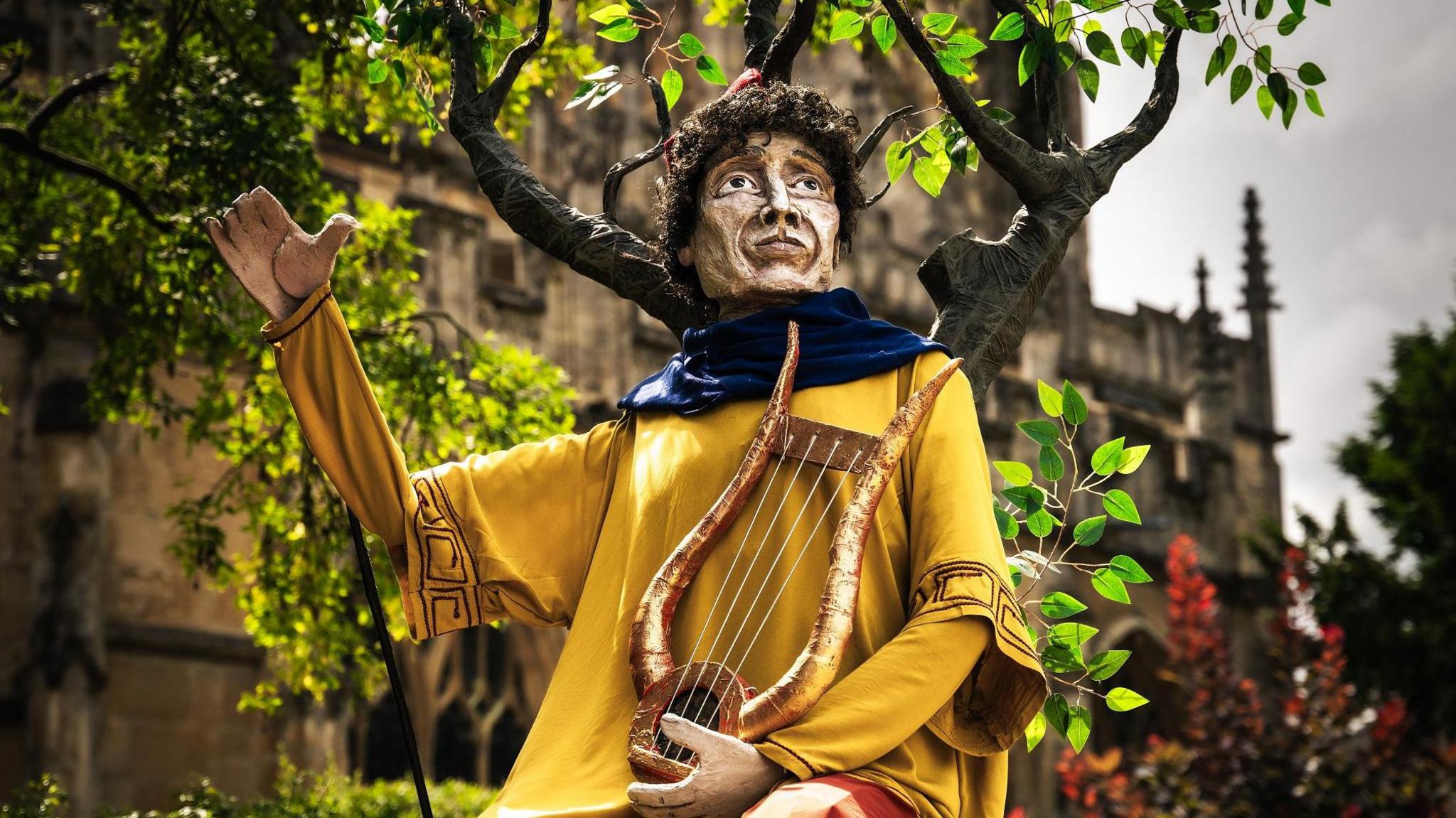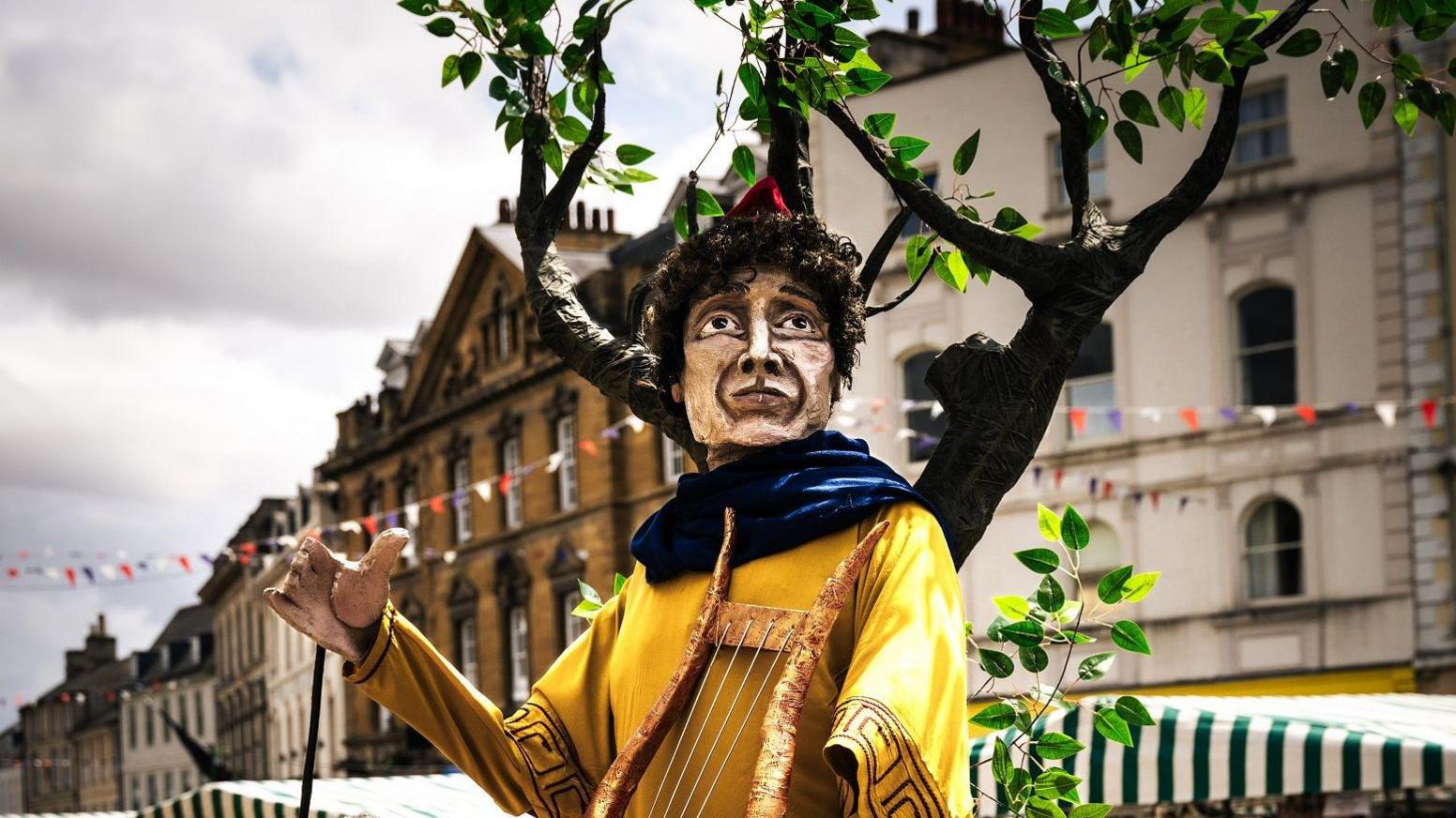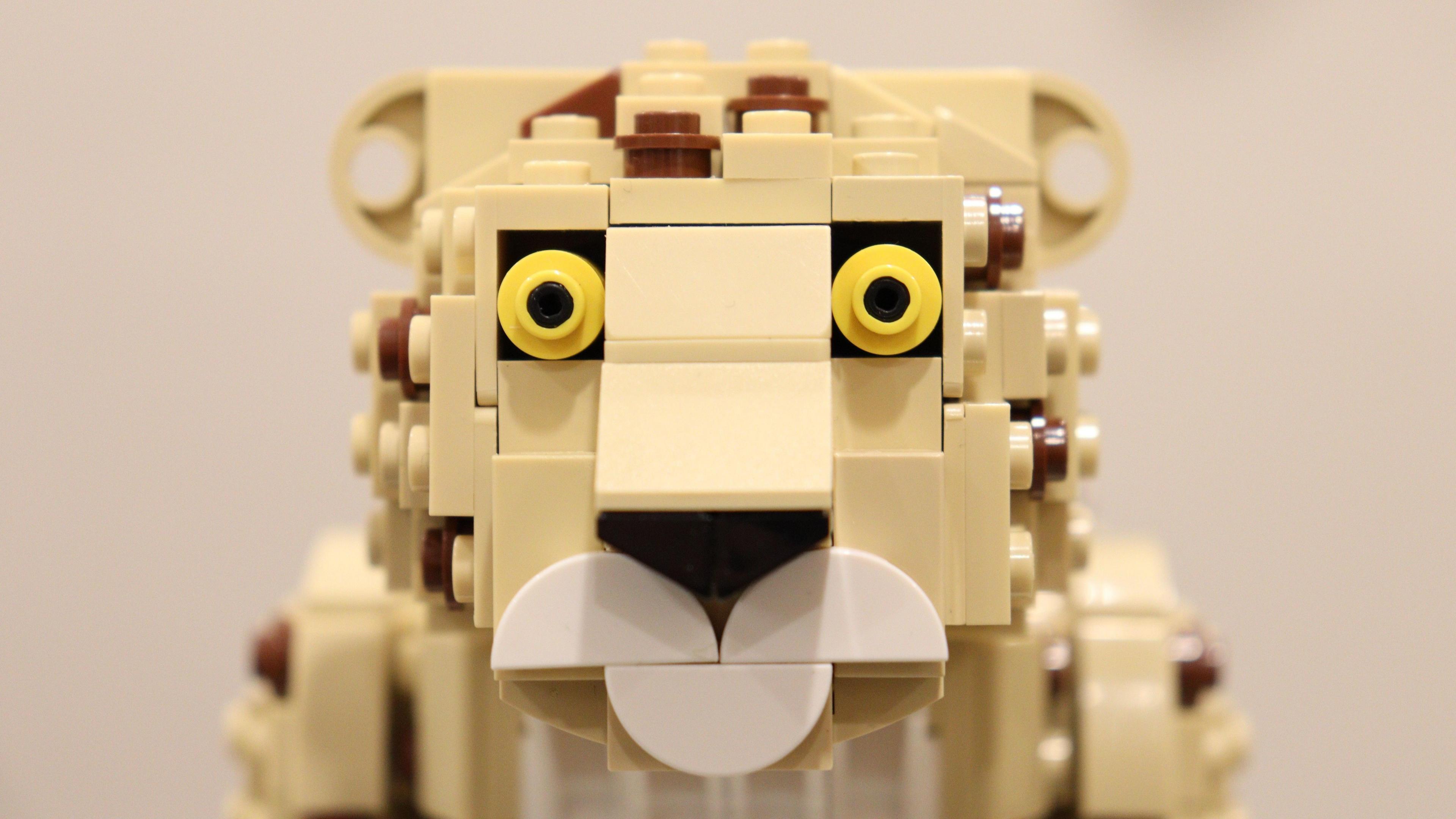Giant three-metre Orpheus puppet goes on display

The puppet will star at the centre of a parade through the town in August
- Published
A giant puppet of an ancient Greek bard is set to go on display to the public.
The three-metre reimagining of Orpheus will lead a parade of puppets at the Cirencester Phoenix Festival in Gloucestershire in August, and before that will be on show at the New Brewery Arts centre in the town.
The project is part of a wider celebration marking 200 years since the Orpheus Mosaic was uncovered at Barton Farm, just outside Cirencester.
"I think it's really important to remind Cirencester about the history and heritage we have and how lucky we are that we can have these cultural experiences just within our town alone," said Stuart Matthew Price, Project Orpheus producer.
A collaboration between the Barn Theatre, New Brewery Arts and Corinium Museum and in association with Phoenix Festival, the project will culminate in a parade on 23 August starting at the Abbey Grounds.
The enormous Orpheus puppet will be at the very centre of the parade, surrounded by hundreds of people marking the anniversary - many of them children who have created their own miniature puppets of different animals.
The ancient mythical Greek figure was renowned for his skill as a poet and musician, and was even said to have been able to lure animals to watch him play.
"We wanted to use this idea of Orpheus and his connection with nature and music to be the symbol of our interpretation," said Mr Price.

The ancient Greeks revered Orpheus as a skilled poet and musician
The artist behind the puppet, Russell Kirk, told BBC Radio Gloucestershire the work had involved "a lot of research", particularly around the imagery of the uncovered mosaic and the "practicalities" of building such a large recreation of the bard.
Describing the creation of Orpheus' face, Mr Kirk said: "I've gone for a sort of wistful youthfulness, but often with these things they start to build themselves.
"As you're making them you have a dialogue with what you're making and the materials you're using."
Beth Alden, CEO of New Brewery Arts, said it seemed "unbelievable" that the Roman ancestry of Cirencester had not always been common knowledge.
"Then 200 years ago a tree fell down, and under that tree was a mosaic and we all suddenly realised the heritage we'd forgotten about," she said.
"So it's really important to mark that moment that we became a Roman town again."
Get in touch
Tell us which stories we should cover in Gloucestershire
Follow BBC Gloucestershire on Facebook, external, X, external and Instagram, external. Send your story ideas to us on email or via WhatsApp on 0800 313 4630.
Related topics
- Published25 April
